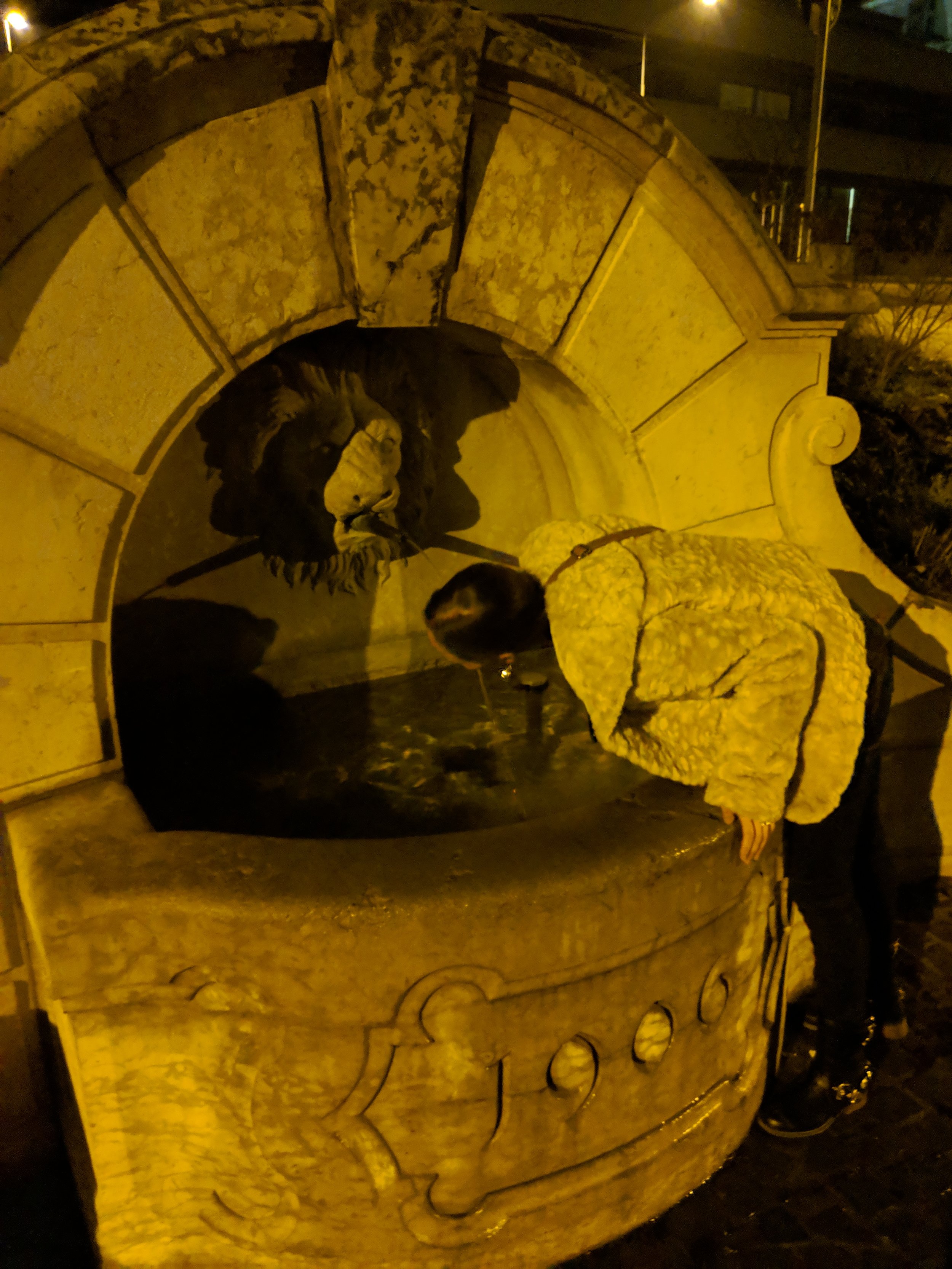5 Things Switzerland Can Learn from the World
If you’ve been reading my blog, you know by now that I love living in Switzerland. And if you are new, let me put this out here right at the beginning - I love living in Switzerland. I wax poetically on the daily on everything from the beauty of the Alps to the cleanliness of the streets to the deliciousness of the cheese. My husband and I purposefully chose to live in Zurich, and even though there were a few growing pains and learning experiences at the start, we both overwhelming appreciate the lifestyle here. The city has completely surprised me.
But not everything is perfect. I wrote last week about the five things the world could learn from Switzerland. So now, here are five things I think Switzerland can learn from the world. The Yin and Yang, all of which contribute to the uniqueness of Swiss life. With the exception of #1. #1 needs to go.
1. Switzerland, time to update your resume
It’s common - nay, expected - to include a headshot, marital status, and date of birth on your resume in Switzerland. If you are a woman (not a man, mind you), it’s also common to include the number of children you have and their ages as well. Oh boy, the Swiss CV riles me up every time I talk about it. Let’s get one thing straight, Swiss employers: Neither the way you look nor your gender nor your relationship status nor your age should have any bearing on your ability to do a job.
Maybe this makes me so angry because it is just the tip of the iceberg. While gender discrimination is technically illegal, Switzerland has some big struggles with pay disparity, discrimination and just generally sexist and outdated attitudes toward women, in and out of the workplace. Traditional gender roles are still strong, with men as the sole breadwinners and women at home tending to the children. Part-time jobs are colloquially referred to as “women’s work.” Women didn’t get the right to vote until 1971, with one canton holding out until 1991 (another fact I learned from my integration course).
Switzerland has some big struggles with pay disparity, discrimination and just generally sexist and outdated attitudes toward women.
If you are a married woman, at what a company deems a “child-bearing” age, that company can be fairly transparent about not hiring you because you might get pregnant and have to go on maternity leave - even though the maternity leave allowance in Switzerland is far behind most other European countries. And there is no statutory paternity leave at all, with companies maybe granting new fathers one day off for the birth to smoke cigars with their buddies.
And beyond the gender problems, ageism and anti-Swiss sentiments are also alive and well. At the very least, all of these issues are exacerbated when you require such information on a job application. At the worst, they fling open the doors to all types of hiring discrimination in a country that already behind in equality measures.
I understand that this type of data - photo, marital status, children, etc - are all readily available from social media accounts these days. But expecting it on a resume? This is one Swiss standard that I truly cannot accept. I refused to do it when I sent in my own CV for school and was honestly worried that it would impact my application. Get with the times, Switzerland, and get rid of this completely unnecessary expectation. Thank you for coming to my TED talk.
2. Not everything needs to live and die by the postal service
Switzerland runs on the post service. And don’t get me wrong - it’s great. I trust the USPS (United States Postal Service) as far as I can throw it. The Swiss system? I’d trust it with my life. But it is - a lot.
We got more mail the first month in Switzerland than in an entire year in SF. Paying the rent? You’ll get sent an invoice that you need to pay at the post office, because the post office can also be a bank. Need a cell phone? When we ordered a mobile phone plan online, the postman came to our house to verify ID and signature, deliver the SIM card, and activate the contract. Want to get your letters? Mail will only be delivered if your name is on the post box, as there are no apartment numbers. When we first arrived, we were in a temporary apartment and only Raunaq’s name was on the mailbox. A few weeks in, I ran into the postman. “Oh, you are Alexandra Bornhoft! I’ve been sending those letters back.” The post office even run it’s own bus system, the PostBus, that helps connect rural areas that otherwise wouldn’t have normal bus routes. It’s very extensive, and very reliable.
This all feels delightfully old-school, until you try to pay your rent on your lunch break and realize that the post office is closed from 12:00-1:45 for their own lunch break. Or when you keep missing the postman and don’t have a cell phone for weeks. Or when you try to log into your online healthcare portal for the first time because you have a medical emergency, but only to find out the insurance company will need to mail you the activation code before you can do anything else. When I applied to university here, everything had to be done hard-copy and mailed via post (even my professor recommendations from the United States had to be snail-mailed).
Die Post is wonderful. But maybe, just maybe, give us a paperless post option, too?
3. Somebody, please, small talk with me.
I never thought I’d say this, but: I miss small talk. I didn’t even realize how much I missed it until my first trip back to the U.S. in December, when as we were waiting for our Avis Rental Car paperwork to be processed, the counter guy proceeded to tell us about all the times men had gotten caught having affairs because their wives found rental cars on credit card receipts. I missed that! Not the cheating, the small little chatter that you have when you interact with strangers, especially when you get a juicy random tidbit, but even if it’s about the most clichéd of all small talk topics, the dreaded weather. It’s small talk, but within it, a tiny little piece of connection with your fellow humans.
Not all stereotypes are true, but the one about Swiss being generally reserved? From my (albeit limited) experience, that one is spot on. They respect personal space and privacy, and that extends itself to casual chit chat. Even a simple “How are you today?” can be viewed as intrusive to a stranger, I’ve been told. It’s probably worse if you try to strike up a conversation with “PLEASE!,”like I did for the first 3 months living here, confusing the German “gruezi” with “bitte.”
It feels neutral to the extreme. Privacy and independence are valued here in Switzerland, but sometimes it is like everyone is orbiting in their own little bubble, and I just want a little more interaction. People aren’t passive-aggressive, but just…passive.
They say the Swiss are like coconuts - tough to break that outer shell and get into their private sphere.
Sometimes, I’ll admit, the introvert in me enjoy the lack of the chat. I can pay for my things and leave a shop without the additional efforts of polite conversation. But for the most part, I miss it. I miss just striking up a conversation while waiting in line, or joking with a waiter, or chatting with a barista while they pulled espresso shots. Sure, some of this can be chalked up to a language issue, or the fact that I’m in a new city and just craving social interaction more than when I was in San Francisco. But this has also been confirmed by exactly two Swiss people, so it’s somewhat validated (right?).
All this just makes meeting locals a lot harder, especially as an expat. They say the Swiss are like coconuts - tough to break that outer shell and get into their private sphere. Small talk is clearly not the machete with which to hack my way in.
4. Free water in restaurants
There are over 1200 public water foundations in Switzerland, all spouting crystal-clear drinking water seemingly straight from the Alps. Stadt Zurich employs a whole team of people whose job it is to inspect and monitor the quality of water in these foundations. Sometimes the fountains freeze over in the winter, sometimes the local flower shop fills the entire basin with flowers, but at the end of the day, it’s deliciously cold, free water throughout the entire city. It’s one of the main reasons I love running in Zurich, because you are never far from a quick refresh. I regularly fill up my Swell bottle when I’m out and about in the city. There’s one outside our apartment, and I always stop by for a quick sip to and from outings. I’m all about that hydration.
Then WHY, pray tell, do all restaurants need to charge such exorbitant prices for tap water? I’m talking 4, 5, 6 francs for a simple carafe of water for the table. Maybe that doesn’t sound that expensive, especially in relation to Zurich prices, but it costs as much as a beer and it’s something I can get for free if I walk 10 paces from my table to the fountain. I understand charging for fancy sparkling or mineral water, but I’m perfectly content with the city water. Tap water. Faucet water. The very same water that is coming out of those 1200 public fountains as I write this, because they flow twenty-four hours a day, seven days a week. Not to mention that we are probably already paying sky-high prices for a meal, and please sir, can’t we just have a glass of free water?
But it’s the principle of the matter. It just drives me insane.
The one exception, curiously, is when you order a coffee beverage at a cafe, like an espresso or cappuccino. For some reason, that will generally be accompanied by a mini (teeny tiny) glass of that sweet sweet water. But for everything else, no dice.
Could I just buy the water? Yes. Do these restaurants have every right to charge whatever they want? Of course. Can I just bring my own refillable water bottle to the restaurant? I mean, I guess. But it’s the principle of the matter. It just drives me insane.
5. Sunday sacredness has its limits
Switzerland grinds to a halt on Sundays. It’s not Catholic, or for any religious reason at all, but the entire country voted on it, and it’s a bit like having a national holiday once a week. Most stores are closed, save for a couple in the train stations or in big tourist locations. It’s practically a requirement for citizenship to go hiking (or skiing) on Sundays. I just commented to Raunaq last week: “Remember when Sundays used to be...just another weekend day?” It did take some getting used to in our first month.
More than once, we made the mistake of leaving our grocery shopping to Sunday, and then had to brave the tiny train station market along with the rest of forgetful Zurich. Which is quite possibly the worst time, especially because we still needed Google Translate to look up the names of things we were buying because we didn’t (yet!) know German. Taking 10 minutes to understand the type of tomato you are buying when a line of 15 impatient Swiss forms behind you is not a good look for a foreigner.
I embrace the Sunday slowness now, I really do. But - the official rules and unofficial norms are just a little much, especially the ones that dictate what you do inside your own apartment. You are not supposed to do anything on Sundays. Or at least, it seems, nothing that makes noise. Don’t use the washing machine. Don’t vacuum. Don’t play music too loud, or better yet, at all. Don’t use the public recycling bins. We don’t have a lawn, but if we did, no mowing on Sunday.
I don’t understand this. Is everyone sleeping all day? Aren’t we supposed to be outside hiking? Is this to encourage me to go outside and hike instead of do laundry? I appreciate the underlying message: Get outside, be with friends and family, don’t work or do chores, enjoy yourself. That’s a lovely sentiment, and I wholeheartedly agree, but sometimes, and again, I never thought I’d say this, a girl just needs to vacuum.
*Honorable mention* When it comes to Mexican food, don’t even try.
I miss Mexican food as much as the next California expat in Europe. But never, under any circumstance, is it OK to put feta cheese in a burrito. And worse, have the audacity to call that burrito a California burrito. Blasphemy.
On that note, anyone know where we can get good Mexican food in Zurich?














